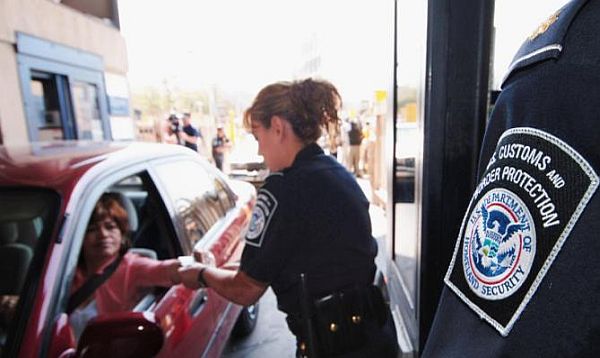San Diego, California - Drug smugglers are turning people who are granted "trusted travellers" status by the US government into unwitting mules by placing containers with powerful magnets under their cars in Mexico and then recovering the illegal cargo far from the view of border authorities in the United States.
One motorist spotted the containers while pumping gas after crossing into Southern California on January 12th and thought it might be a bomb.
His call to police prompted an emergency response at the Chevron station, and then a shocker: 13.2 pounds of heroin were pulled from under the vehicle, according to a US law enforcement official. San Diego police officers said the drugs were packed inside six magnetized cylinders.
The driver had just used a trusted traveller lane at the San Ysidro border crossing, said the official, who spoke on condition of anonymity because some details of the case have not been made public.
Authorities have learned of at least three similar incidents in San Diego since then, all involving drivers enrolled in the enormously popular SENTRI program, which stands for Secure Electronic Network for travellers Rapid Inspection.
There were 12.6 million SENTRI vehicle crossings in fiscal 2013, more than double the 5.9 million four years earlier.
The program enables hundreds of thousands of people who pass extensive background checks to whiz past inspectors with less scrutiny. Signing up can reduce rush-hour wait times from more than two hours to less than 15 minutes at San Diego's San Ysidro port of entry, the nation's busiest crossing, where SENTRI users represented 40 percent of the 4.5 million vehicle crossings in fiscal 2013, the Government Accountability Office found.
But like other prescreening programs, there's a potential downside: the traveller can become a target, and such cases can be tricky for investigators when people caught with drugs claim they were planted.
Using magnets under cars isn't new, but this string of cases is unusual.
The main targets are people who park for hours in Mexico before returning to the US, authorities say. Smugglers track their movements on both sides of the border, figuring out their travel patterns and where they park. It takes only seconds to attach and remove the magnetized containers when no one is looking.
"It's a concern for everyone, not as big a concern for me because I'm careful," said Aldo Vereo, a SENTRI user and office assistant at the San Diego County Health and Human Services Agency who parks in a garage when home in Tijuana and varies his routes. "People should be worried because they go straight home and straight to work."
Trusted travellers were issued windshield decals for years, but they are no longer needed to identify vehicles approaching the inspection booths. New stickers haven't been issued since 2013, and the US Customs and Border Protection agency says existing stickers can be removed.
Many haven't heeded the call, which can make them a target. The Otay Mesa Chamber of Commerce in San Diego told newsletter readers last week that decals should go.
"It's basically demonstrating that you are a SENTRI user," said Alejandra Mier y Teran, the chamber's executive director. "Criminals are savvy, and they know they are part of a program where they are not checked as much."
CBP says frequent crossers also should vary their travel routines and keep a closer eye on their cars.
There have been 29 cases of motorists unwittingly carrying drugs under their cars in the San Diego area since US Immigration and Customs Enforcement identified the trend in July 2011, including six drivers who made it past inspectors, said spokeswoman Lauren Mack.
Original Story


